“We are at war,” intones Col. Nick Fury, about ten minutes into The Avengers. As consumers of summer blockbusters, we’re used to seeing wars on the big screen. We’re also (finally) accustomed to seeing high-quality superhero movies. But the idea of superheroes engaging in war, at least in cinema, is new to us. What are the implications for the Avengers going to war? How does The Avengers handle the policy implications of their war with Loki and the Chitauri? And what happens next?
We Are At War
First off, we can take Fury’s ominous declaration as a means of rallying his team, not an actual, legal declaration of war. In the U.S., war can only be declared by Congress, though that restriction has been relaxed of late. Then again, Fury isn’t committing traditional military resources to this conflict, so there’s less to worry about.
But even if SHIELD is the only force at Fury’s disposal, this raises another question: does SHIELD have the power to conduct a war? What is their remit?
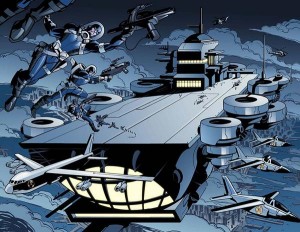
SHIELD has gone through a number of revamps and rebrandings since Nick Fury took the helm in 1965 (Strange Tales #135). The current incarnation, as patiently explained by Agent Phil Coulson several times in 2008’s Iron Man, is the “Strategic Homeland Intervention, Enforcement and Logistics Division.” Their role is never explicitly spelled out, but it seems to involve stopping superpowered crises (Intervention), preventing superpowered folks from breaking the law (Enforcement) and transporting things like frozen super-soldiers and mystical hammers from place to place (Logistics).
I’m not clear on whether SHIELD in the movies is a U.N. agency (as in the comics) or a U.S. agency. The official Marvel.com Avengers website (WARNING: huge, terrible Flash intro) lists SHIELD as an “international peacekeeping agency” in Nick Fury’s bio. Additionally, Spencer Ackerman’s take on SHIELD in Wired describes them as an international agency – and that’s the take his contacts in the DoD had on it, since they bailed on participating.
However, the use of “Homeland” suggests that they’re a domestic agency in the movie universe. Plus, Fury and Coulson clearly have some domestic authority, as evidenced in Iron Man, Thor and Captain America. It beggars belief that the U.S. would let a U.N. agency run around American soil and scoop up superweapons. Suffice it to say, SHIELD’s role re: the American military is ill-defined.
Using the Marvel comics as backstory – always a bit of a risk when crossing over to the big screen, but what else do we have? – SHIELD has its roots in intelligence. Their chief job seems to be monitoring: finding crises or interesting things around the world, then dispatching agents to contain them. We’ve seen it in prior movies, when Agent Coulson shows up in a post-credits teaser to radio in to his superiors. We see this in The Avengers, too, where Fury boasts of the power to use everything in the world with a wireless signal as a listening device.
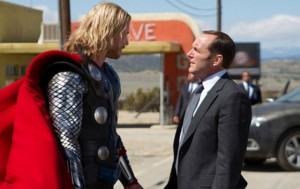
So SHIELD is a cross between an intelligence-gathering / law-enforcement agency. One would think they don’t have the power to conduct a war, anymore than the FBI or CIA would. Then again, the CIA has engaged in warlike activities for years, such as deposing foreign rulers, financing foreign armies, and assassinating demagogues. So it’s not unreasonable for an intelligence agency to make war on a hostile power.
In any event, there’s no disputing that the U.S. is, in fact, at war. A foreign force (the Chitauri aliens, under the command of the Asgardian Loki) invades the continental United States and lays waste to the infrastructure and populace. But this isn’t the sort of war where the President calls up the Army and the Navy to defend the coast. This is part of the new era of warfare, where the enemy is a stateless actor, hiding in the shadows and striking at unpredictable intervals to cause civilian casualties. This is a war of intelligence first, where finding the enemy is as much the challenge as breaking his ability to make war.
WHOSE WAR IS IT, ANYWAY?
Fury and SHIELD take charge of tracking down Loki and his weapons. But when the actual invasion begins, who are the frontline fighters?
We have Captain America, an infantry officer whose field command experience is seventy years out of date. The last war he fought in was the invasion of Europe, a massive movement of men and weaponry that took years to coordinate and execute. In his cryogenic coma, Steve Rogers has missed out on Korea, Vietnam, Afghanistan and Iraq. More importantly, he’s missed out on the lessons of those wars as well.
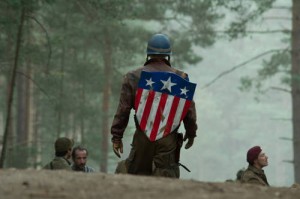
For one thing, contemporary soldiers in the U.S. receive very different forms of training, for very different purposes, than doughboys in the 40s did. The current institution for overseeing training and Army doctrine, TRADOC, didn’t exist before 1973. And the differences aren’t just in practice. S.L.A. Marshall, a combat historian active in WW2, claimed that fewer than 25% of all soldiers in action ever fired their weapons directly at the enemy. This ratio of fire climbed to 90% by Vietnam. (Note that Marshall’s figures have come under question in the last 25 years, but more accurate numbers have yet to appear) Soldiers from the WW2 era and the post-Vietnam era are different sorts of fighters.
Combat readiness aside, the U.S. hasn’t engaged in a war like WW2 since WW2. The invasion of Europe was a coordinated effort to break the capacity of a hostile power (Germany) to make war. Vietnam, Afghanistan and Iraq, on the other hand, have been wars of counterinsurgency, “hearts and minds” campaigns in foreign territory. This leads to an entirely different set of strategies. Nuking cities as a show of strength, for instance, is a no-go. The rules of engagement for Berlin would be completely different than the rules of engagement for Fallujah.
Cap is eminently qualified to punch aliens in the jaw and deflect their blasts with his shield. As a commander, though, we might have reservations about the effectiveness of his leadership in the modern era of war. The Chitauri are an invading force, so many of those objections can be overlooked. But if SHIELD went to war with Genosha or Latveria, would Cap be the best man to put in charge?
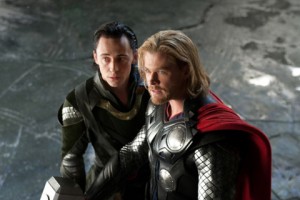
Speaking of “hearts and minds,” the 21st century has already proven that it’s tough for a foreign national to show up in a country, claim to be its appointed defender, then set about slaying foes with a weapon known to inflict collateral damage. Yet that’s exactly the position Thor finds himself in. He takes the role of “defender of Midgard” in order to prove himself worthy to his father, Odin. But he also wields a hammer that hits with the force of a mortar shell and can call down lightning. His battle with the Destroyer in his titular movie levels a small town, as several people point out in The Avengers. Clearly Thor’s presence on Earth has the ability to attract harm as well as bring good.
Tony Stark, as owner and operator of the Iron Man battlesuit, is the most clearly qualified to fight in a modern war. But his presence raises a few questions about incentives. Stark Industries was, up until the events of Iron Man, a leading American defense contractor. When defense contractors and intelligence agencies work hand-in-hand, there’s a noted tendency for the agencies to escalate their tactics to take advantage of their new toys. Part of this may be due to the new opportunities that skilled professionals present, but part of it may also be due to lobbying by the contractors. And for all of Tony’s claims that Stark Industries is out of the weapons business, he is putting a flying, armament-laden battlesuit at the disposal of an immensely powerful intelligence agency. SHIELD might be fine forgoing Stark weaponry if they have Stark himself at their disposal. When all you have is a repulsor beam, everything looks like a Chitauri.
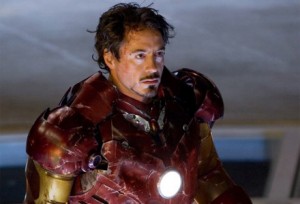
And finally, there’s the Hulk.
As I mentioned in the Avengers podcast, there’s something ironic about Nick Fury objecting to nuking Manhattan, yet deploying the Hulk. A nuclear weapon would cause trillions in property damage and inflict hundreds of thousands of casualties, but the Hulk has the demonstrated potential to do the same. He’s an indestructible monster that gets stronger as he gets angrier, and everything makes him angrier. A nuclear launch has one huge advantage over the Hulk: it can be aborted. Once you “turn on” the Hulk, you’re relying on Dr. Banner’s willpower to turn him off again. From a policy perspective, a nuke is predictable, disposable and replicatable. Compare that to a megaton temper tantrum that can trade body blows with the God of Thunder.
I’m omitting Hawkeye and Black Widow from my analysis because, as capable as they are, they’re intelligence officers first and foremost. Barton even makes this observation to Romanov while they’re recuperating. They acquit themselves mightily, but it’s obvious they have the least impact on the front-line fighting.
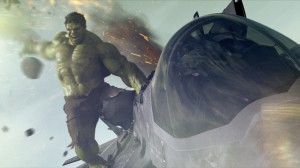
Fury wasn’t wrong to deploy the Avengers – look at how well they did. But this is a judgment in hindsight. Defense doctrine relies on tested theories, predictable factors, and extensive briefings. The four heavy hitters of the Avengers are all sensitive elements that could be misused if not governed by sound policy.
So what policy should govern them?
THE FURY DOCTRINE
Defense policies in the U.S. are typically referred to as “doctrines,” meaning a set of rules that dictate when military assets should be put to use. They’re not laws; they’re not even regulations. They’re rarely codified in a set of bullet points until after the fact, when a historian or journalist can point to the decisions made and find the common thread. They’re typically named after the person in charge at the time: the Monroe Doctrine, the Weinberger Doctrine, the Bush Doctrine, etc.
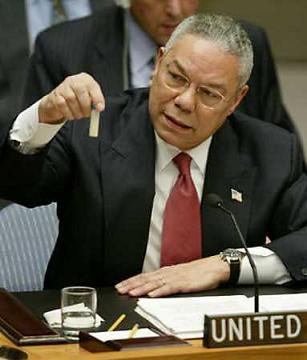
We have no indication that Saddam Hussein has ever abandoned his gamma-irradiated super soldier program
Nick Fury has at his disposal the most powerful and most unstable individuals ever to put their talents in the service of a government body. He deploys them against an intergalactic threat of unprecedented proportions. What are the governing principles that Fury follows when putting the Avengers to use?
1. Operational decisions are delegated as close to the field as possible.
In traditional warfare, strategic decisions are left to the highest ranking defense minister (the Secretary of Defense in the U.S.) and the commander-in-chief of the armed forces (in the U.S., the President). The major military departments and the regional commands will certainly lend their input, and some wonks might say that their influence dictates strategy (e.g., note how battleships fell out of favor in the 20th century, or the continuing turf wars between land power and sea power, or between armor and infantry, etc). But the farther away from the press of battle you get, the more of a say you have in strategy.
That’s not how SHIELD and the Avengers fight their wars.
Nick Fury reports to a shadowy council that holograms into his command suite to demand updates and issue orders. However, the decisions about where to direct resources, and to what end, are his alone. It’s his call to scour the Earth for the stolen tesseract. It’s his call to bring the Helicarrier to New York when the aliens invade. And since the Helicarrier frequently comes under attack – it is an aircraft carrier, after all – this puts the command element in danger.
Once the Avengers hit the streets of Manhattan, they have a tremendous level of operational control. Captain America dictates where and how the Avengers are to be deployed. Making the call that Hawkeye and Black Widow should stay with him to repel the aliens and help civilians escape isn’t a controversial call. But no one dictated where civilian safety fell in the list of priorities. Obviously, the Avengers want to save civilians, but is that more or less important than driving the Chitauri back? That’s typically a policy decision made at the strategic level, but Cap makes that call in the field.
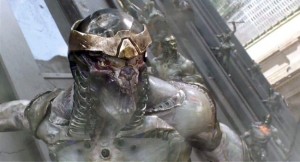
And consider Iron Man’s fourth-down audible: hijacking SHIELD’s nuclear missile and flying it through the dimensional portal to the Chitauri fleet. That’s a significant policy decision! The last time nuclear weapons were used in warfare, it took the Commander-in-Chief to sign off on their deployment. We would object if the pilot of the Enola Gay had sole authority over whether or not to nuke Japan – or, even worse, if it were his idea in the first place. Yet Iron Man takes the fight to the enemy with few objections.
Neither Captain America nor Iron Man made a bad call in those circumstances. But those decisions typically aren’t made by combat personnel.
Why would Fury allow such a level of autonomy among his forces?
As observed above, this is a very different type of war. The enemy’s capabilites are completely unknown to SHIELD and the Avengers. Nobody knew about the skyscraper-sized bugs, for instance, until they showed up. The only person who has any data on any hostile is Thor, and he shows up too late for his briefings on Loki to be that useful. The intel for this war is being gathered in situ; the Avengers only learn about the Chitauri’s strengths and weaknesses once the Chitauri arrive. Operational decisions are made in the field because they can’t legitimately be made any higher.
2. No policy choice or tactic is off the table if it serves the interest of defeating the enemy.
While Fury’s fighting a smarter and more agile war than his predecessors, he’s also fighting a far more ruthless one. He wants to drive these aliens off of Earth by any means necessary. This is a level of extremism we rarely see in history, and which we typically don’t associate with the good guys.
What kind of extreme measures does Fury take?
First, even before Loki arrives on the scene, Fury is already hard at work repurposing HYDRA weapons to arm his agents. As we saw in Captain America, these weapons were powered by the same energy source as the Tesseract, which explains why Fury is studying it in a secret underground bunker. While there’s historical precedent for whitewashing the work of WW2 enemies, this reHYDRAization appears to have fewer civil and more military aspects.
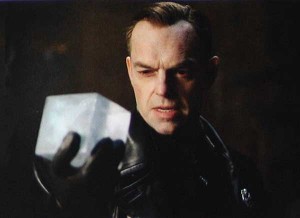
Second, Fury himself is personally devious, using Agent Coulson’s bloodsoaked trading cards as emotional blackmail against Captain America. It’s a calculated appeal to Steve Rogers’s pride and love of service, and it works perfectly. As Maria Hill points out, it’s also staged – Coulson kept his trading cards in his locker, not on his person. Even the most hardened general might blanch at lying to his most trusted officer about the recently deceased – especially if that same officer had just caught him in a lie (see the above paragraph) – but not Fury.
And third, to reiterate a point made earlier, Fury brings the friggin’ Hulk to the battlefield. His stated intention is just to use Dr. Banner as a gamma ray expert in tracking the Tesseract. But Fury is devious enough that we have to discount his stated intentions. Banner may be the world’s expert on gamma radiation, but he’s also a walking weapon of mass destruction. Wouldn’t the world’s second-most knowledgeable radiologist do? It only makes sense that Fury would recruit Banner, and all the risks that that implied, because he wanted to use “the big guy” as a trump card.
(Given the dangers inherent to the Hulk, why does Fury balk at the council’s decision to nuke Manhattan? Because it violates point #1 of the Fury Doctrine. The decision to nuke New York can only be made by folks close to the action, not mysterious figures in a shadowy office)
Strategists should question the means used in a war just as much as philosophers do. General Curtis LeMay said (according to Robert McNamara) that, if the Allies had lost WW2, they would have been prosecuted as war criminals for what they had done. Fury, himself a veteran of WW2, must be aware of this. And yet he still commits himself to the most extreme measures. If the Chitauri win their invasion, a war crimes tribunal will be the least of SHIELD’s problems.
3. No standing armies will be maintained.
Given the militarism of the first two points of the Fury Doctrine, this is an odd one to end on. Yet Fury clearly refuses to maintain a standing army in times of relative peace. The SHIELD agents aboard the Helicarrier are all armed and trained, but there’s no SHIELD Army supporting the National Guard in Manhattan. SHIELD is an intelligence / law-enforcement agency, a role that requires its members to carry weapons but not to invade or defend. And, of course, Fury ends the movie by disbanding the Avengers and telling the council (honestly or no) that he doesn’t know their whereabouts.
Why wouldn’t Fury want a full-time, professional army? Why not keep the Avengers aboard the Helicarrier and dispatch them to global crises?
For one, that level of power draws a significant amount of attention from the rest of the world. The Avengers are already coming under scrutiny by American authorities after one deployment in Manhattan. Imagine if the Avengers had a bigger media presence – if there were a super-soldier in American colors parachuting into Yemen to throw an unbreakable metal shield at terrorists. That would draw a lot of critics and several enemies. Whether Fury doesn’t want to deal with that hassle or whether he recognizes he doesn’t have the resources to, he’s staying out of it either way.
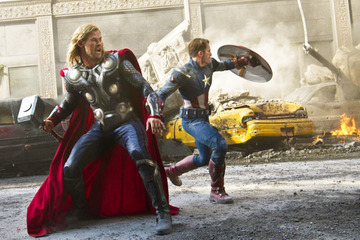
For another, he simply might not be able to. Tony Stark is a multi-billionaire who can hack into SHIELD’s networks with trivial ease. Thor can fly with the aid of a magic hammer. And the Hulk is the proverbial five-hundred pound gorilla who can sit wherever he wants. You try telling those three that they’ve been conscripted.
FIGHTING TOMORROW’S WARS
In the Avengers, the world has a fighting force that’s not meant to handle conventional threats. They exist not only outside the command structure of any existing army, but outside the hierarchy of most nation-states. Their capabilities and hang-ups are wildly disparate. And they’re governed by a doctrine that limits their use to a very small set of extreme circumstances.
These are the big guns. You call them in only when the stakes are global in scale. And you do so very carefully.
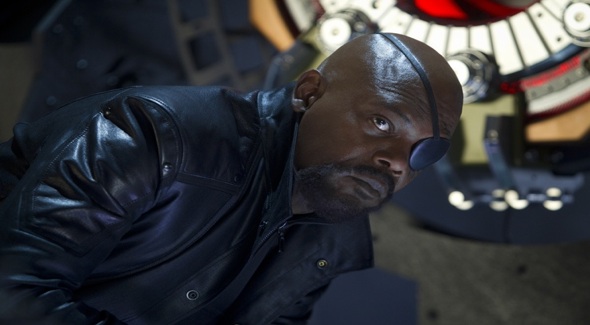
“Even the most hardened general might blanch at lying to his most trusted officer about the recently deceased”
Not to mention ruining a set of highly collectable cards by putting blood on them.
Excellent analysis as always.
Strategists should question the means used in a war just as much as philosophers do. General Curtis LeMay said (according to Robert McNamara) that, if the Allies had lost WW2, they would have been prosecuted as war criminals for what they had done. Fury, himself a veteran of WW2, must be aware of this.
Wait, he’s supposed to be a vet of WW2 in the movie? Anti-aging serum? I mean, Sam Jackson is grizzled, but not that grizzled.
That nitpick aside, great post.
In the comics, Nick Fury is a veteran of WW2.
I don’t know if the same is true in the cinematic universe, but he mentions in Iron Man 2 that he knew Tony Stark’s dad Howard personally. This would mean Fury was at least in (… guessing …) his 30s during the 1960s, and possibly older. So cinematic Nick Fury is taking an anti-aging serum, just like comic book Nick Fury. Whether they’re the same age is uncertain, but it’s a reasonable speculation.
I think John might be jumping to conclusions regarding Fury’s age. Both mainstream and Ultimate comic iterations of Fury posses some kind of age retardant enhancement, but I don’t think we have very good evidence to support that the cinematic Fury possess the same.
The only evidence we’d have is that Fury was personally acquainted with Howard Stark and that Stark was a founding member of Shield. From the opening montage of Iron Man, we know that Howard Stark was killed in a car crash when Tony was 17, following his graduation from MIT.
Presuming that Iron Man is set in 2008, and that the Robert Downey Jr. and Tony Stark are about the same age (plausible), that would place Howard Starks’s death in and around 1983 [42-17=25; 2008-25=1983). Applying the same logic to the Samuel L. Jackson/Nick Fury age [1983-1948=35], Nick Fury was 35 years old at the time of H. Stark’s death.
Entirely plausible for the two to be acquainted and indeed, to be working together at Shield. Although Fury was probably more a mid-level functionary rather than the director at the time.
tldr: Applying Occam’s Razor, cinematic Nick Fury probably does not benefit from age retardant treatments.
Extremely minor well-actually: the use of the term ‘doughboy’ had become extremely rare by the time of WW2. It was much more popular during WW1.
Otherwise, great article.
I’ve still not seen The Avengers yet (I know, I know), but this quarter I am teaching a course on the ethics of war, and I just directed my students to this article. They’ve been finding the Just War Theory constraint that war be declared by a legitimate government a bit weird, or at least thought-provoking, so I’m hoping we’ll have a good discussion. Thanks!
In fact, this makes the second time I’ve done this — last Fall I had them all read the article on Marxism and the Muppets, to try to get a handle on alienation.
An even minor-er well-actually: it should be “jus ad bellum”, not “jus ad bello”. “Ad” takes the accusative here, since the intention is “justice in going to war”. Once you’re in war, though, you’re concerned with “jus in bello”. Just to confuse you.
DAMN IT, you’re right. My conjugal visits to Latin are infrequent and unsatisfying.
Perhaps a unifying thread running through “Fury Doctrine” points 1 and 3 is the idea that proportionality is key. Big threat? Call up the big guns and let them run things — after all, they’re the ones most familiar with exercising super-human power. No threat? No need for superheros, and no need to consult them either; their expertise isn’t relevant, while Cmdr. Maria Hill’s is. The Fury Doctrine seems to emphasize flexibility above all things, both on the tactical level (delegation of command) and the strategic level (matching response through force availability to situational needs).
I think points 1 and 3 are simply a pragmatic recognition that, in the end, mundanes have no real control over actual superheroes. The article recognizes this in point 3, but it is true for point 1 as well: who the heck is going to tell any of these people what to do? Cap is given ad hoc operational control in the field, but it’s clear that that’s only because the others acknowledge his superior tactical skills, and not because they acknowledge that he has any sort of external authority.
Indeed, it seems to me that the overall Fury Doctrine may be the only way that superheroes can be deployed. In that sense, calling it the “Fury Doctrine” may merely be a polite fiction, giving a veneer of authority to someone who actually has no control over the operatives allegedly under his command.
“Calling it the “Fury Doctrine” may merely be a polite fiction, giving a veneer of authority to someone who actually has no control over the operatives allegedly under his command.”
You mean like the Bush Doctrine? Oh, snap!
Ugh. You know, I really don’t want to open this can of worms, but…here we go. Collateral damage aside, I’d WANT war declared on my behalf if it were evident a clearly superior force were about to invade. Especially if that declaration came from an entity capable of neutralizing or even repelling that invading force.
As for ‘conscription’ – only Captain America would meet that conceptual criteria. Stark could be (read: was) in it for himself, Thor previously committed his allegiance (more or less) via Coulson, and Banner was practically begged/coerced to come on board. In light of what happened in film 1, it would be MUCH easier to enlist their help should more dangers/threats/opportunities for boredom-be-gone arise. By the end, they had developed a genuine team chemistry and would each no doubt be willing to repeat that exercise.
And if Fury was willing to be extreme, he would have let ‘the council’ or whoever the hell they were just nuke Manhattan and be done with it.
Or…have I completely misread the article?
‘Collateral damage aside, I’d WANT war declared on my behalf if it were evident a clearly superior force were about to invade.’
I think this is at least half the attraction of movies like this and Independence Day or (sorry) Transformers is their exploitation of the nostalgia (however mistaken) for America’s role on World War 2, when FDR’s declaration of war was obviously justified and the enemy well defined, which has been much less the case in more recent conflicts.
Not to put words in anyone’s mouth, the comment just got me thinking on those lines.
“However, the decisions about where to direct resources, and to what end, are his alone… Once the Avengers hit the streets of Manhattan, they have a tremendous level of operational control.”
Which sounds remarkably similar to DEVGRU, Delta Froce, and SOG.
Are you reading Law and the Multiverse? They’ve got a slew of posts about the legal side of the movie, including what is SHIELD? and can they go to war?
Beat me to it. Was just about to point there.
I was worried someone would beat me to it – and they did, by about a day. Left a comment over there. Obviously, their legal expertise is MUCH deeper than mine.
There’s another aspect of the Fury Doctrine that hasn’t been mentioned yet: torture. I don’t have the script in front of me, but after Loki is captured there’s a discussion about whether they should used some “enhanced interrogation” to get the location of the Tesseract from him. Fury seems very willing to go that route.
And there’s also his nifty little trick of using every cell phone and webcam on the planet to scan for Loki (a technique that shall forever be known as “The Dark Knight Machine”). It’s a horrible civil libertarian nightmare, but considering the stakes are quite literally the fate of the planet, only Glenn Greenwald could bring himself to care.
Nick Fury is the kind of guy who isn’t going to lose sleep over innocent people getting hurt or killed, as long as it’s for the greater good (as defined by him). In the sequel, I definitely want them to create some tension between the “do the right thing at all costs” nature of Captain America and Thor versus the Machiavellian SHIELD.
Related note: Marvel’s recent “Avengers: Earth’s Mightiest Heroes” cartoon series is available on Netflix, and it’s pretty good. When the series picks up, most of the heroes are openly hostile towards SHIELD. Tony Stark is mad because they stole his technology to build their own robots. Bruce Banner is mad because he thinks they’re trying to weaponize all the supervillains. The series makes Nick Fury an awesome badass with crazy kung fu powers, but you definitely understand why the Avengers are reluctant to work with him. It’s definitely an uneasy alliance.
I think the “Enhanced interrogation” in the movie was Black Widows lying scene.
At least for the comic fury:
The part about Nick Fury not loosing sleep over people being hurt or killed is wrong, I’m going to try and find “The punisher” comic where he beats a five star general with his belt for sacrificing the lives of a plane full of Russians.
It shows that in order to get the mission done (And it was completed) Fury will try his hardest not to risk innocent peoples lives.
I think there was also an insinuation that Thor may have to torture Loki, too- something about, “Would you be willing to do what’s necessary?” or something like that, directed at him by Fury.
Yeah, that’s the scene I was referring to. Fury actually says something like “Everyone thinks they can take the pain, until the pain starts.” It made me uncomfortable, since I spent a lot of time 6 years back arguing about how torture was totally unacceptable. It’s pretty clear that Nick Fury doesn’t have a rulebook. He’s one-eyed Jack Bauer.
Haha, “One-eyed Jack Baur.” I sense an article there, Belinkie…
That is, if we are completely dismissing the idea that he was bluffing. He lied to Cap with the bloody trading cards, he might motivate Thor by threatening the brother that Thor is still hesitantly caring about.
Captain America wasn’t a part of the invasion of Europe, he was engaged in a much smaller and tactical fight against HYDRA. In fact, the objectives and methods of Cap and the Howling Commandos are more similar to more modern combat compared to the total warfare of the first half of the 20th century; the focus on infiltration, sabotage, assassination/kidnapping (in the case of the train sequence)and gathering enemy intel, all of which was carried out covertly not only to avoid detection by HYDRA, but also from the Allies. After all, no one in the military seemingly mentions this secret war against HYDRA or the tesseract weaponry or Cap’s role post-propoganda days in the fight.
Seeing as Cap fought in the way he did successfully against a better armed and technologically superior force, I would say he would be perfectly qualified for operations requiring the invasion of a bad guy base/country, as long as they were covert and Seal Team Six-ish. You are right about Cap not being the type for “hearts and minds” campaigns. Cap invading Vietnam would be like a “Captain Vietnam” coming to America, it just reeks of nationalism and patronization.
Overall I loved your Analysis pf “The Fury Doctrine.”
This is a good point! Don’t forget the montage, though, in which we see Cap and his team running and gunning in several open firefights. Those (to my recollection) were more conventional warfare, albeit against tanks shooting cosmic energy.
While I think a WWII-era soldier in General would be a poor choice to fight a modern war, Steve Rogers specifically is well suited to it. In “Captain America,” he shows a high-degree of openness to different cultures and situations, and is fairly and personable and relatable, suitable for the complex people-skills needed in a counter-insurgency campaign.
His “value-add” to the Avengers is his ability to size up a situation and truly lead the team – the bit where he directs the different Avengers to their posts just before the big battle sequence is a great way of both establishing the spatial relationship of the characters and to show just how good at small-unit tactics Cap really is.
That said, you probably would need to drop the “America” from Cap’s name if you want him to win “hearts and minds” overseas. Not because America is bad per se, but it just doesn’t match with the message we are going for in places like Iraq/Afghanistan.
In the “Avengers” though, as Agent Coulson points out, the symbol of America as a bulwark against alien invasion works pretty well.
“In fact, the objectives and methods of Cap and the Howling Commandos are more similar to more modern combat compared to the total warfare of the first half of the 20th century; the focus on infiltration, sabotage, assassination/kidnapping (in the case of the train sequence)and gathering enemy intel, all of which was carried out covertly not only to avoid detection by HYDRA, but also from the Allies.”
The “Sgt. Fury and his Howling Commandos” comic was set in WWII, but the first issue came out in 1963 (according to wikipedia). So Stan Lee or other writers of the comic were thinking in terms of post-WWII styles of warfare like Korea or Vietnam or Bay of Pigs.
My take is that Fury would have used the Helicarrier to defend New York, which is why Loki and his minions worked so hard to disable or destroy it.
This actually justifies the Fury Doctrine. The Helicarrier is too big, too slow and too vulnerable to unconventional warfare to be effective. The Avengers are small, mobile and adaptable.
In a related note, policy wonks are wondering what the deal with the nuclear weapon was all about. Beside the point made above about collateral damage, there’s also 1) a question of efficacy (could it have closed the portal/stopped the invasion on its own) and 2) the purpose behind re-direction against the invaders.
Stark’s decision to re-direct the nuke instead of simply disabling it is the most vengeful (avenger-ful?) act in the film. The portal was being closed anyway (they actually had to hold it open for him) and that’s what stopped the invasion. When the alien is giving his report at the end (to Thanos, right?) he doesn’t say “they blew up our mothership,” he just says basically “they can fight back,” so the outcome would’ve been the same whether or not the mothership was destroyed. There was no strategic value other than causing compensatory pain, and for that Stark risked not only his own life but NYC also if he hadn’t been able to re-direct it in time (which shouldn’t have worked; nukes normally aren’t set to trigger on impact, so it either should’ve detonated when it got near the tower or not at all).
They’re “The Avengers”, not “The Proportional Responders”.
More seriously, if there is a potential for another future invasion, certainly such an action would cause the Chitauri (and any other races who heard of it) to reconsider. It was an instance of asymmetrical warfare, of using one’s lower tech to inflict disproportionate damage on the enemy, making it clear that their advanced weapons do not necessarily give them an advantage.
That said, given that the portal could not be destroyed by a nuke, it does make me wonder why the Chitauri didn’t just open the portal and lob hydrogen bombs through it until Manhattan was a sea of glass. What was the point of sending a relatively small contingent of fighters into such a geographically small space? Did the Chitauri (or Loki) think they would conquer the earth by seizing a few blocks of New York City?
I presume the portal was meant as a beachhead – that the Chitauri wanted Earth as a territory, not as a cinder. So for that you need ground troops to occupy the area.
Otherwise, you don’t even need a hydrogen bomb. Just slap a booster rocket on an asteroid a million miles out and shoot it through the portal at an oblique angle. It comes out above NYC with insane momentum behind it, translating into kinetic energy that’s probably comparable to an H-bomb at a fraction of the cost.
“I presume the portal was meant as a beachhead”
You’re right, of course, except that as far as I can recall, it was Loki who wanted to “occupy” the Earth, and promised the tesseract to the Chitauri in exchange for help. Given that, the Chitauri might have been willing to soften up the opposing forces with some mass destruction, rather than risk large losses on their side.
“slap a booster rocket on an asteroid a million miles out and shoot it through the portal at an oblique angle”
That would have likely wiped out all but two of the Avengers (Thor and Hulk), which might have been a worthwhile tradeoff for destroying just one city on the planet.
(Planetary bombardment with mass drivers is indeed nasty stuff — one of the most affecting scenes in Babylon 5 is when the Centauri deploy mass drivers to wipe out the Narn homeworld.)
B5 references always make me happy; but the specific reference itself isn’t a happy one, of course.
It isn’t a happy reference, but the scene where Londo watches the mass drivers firing at the Narn homeworld is one of the best in the series — wordlessly acted, and beautifully composed (as I recall, we see the reflection of the attack ships in the window of Lando’s ship as he watches).
Surely the bit of the Fury doctrine missing here is the ‘willing to gamble massively with the lives of everyone on the planet for own agenda’. NB. only using film Nick Fury here.
We’ve already discussed re-HYDRAisation and the trading cards, but Nick Fury’s other move is the biggest ‘morally grey’ move. If it is so easy to nuke the gap closed, why not just not bother with the avengers, wait for the gateway to open, and then nuke it? I get that you probably have to let some destruction happen to justify that action, but eminently achievable. Why not send a message on all frequencies (which SHIELD can clearly do) to tell the humans to submit to Loki- no collateral damage, excuse to drop the bomb.
What Fury does instead is send in his Avengers to attempt to close the gateway. What difference does that make? 1) Less collateral damage IF succesful. 2) Far greater chance of things going wrong, gateway not being closed, Chitauri getting to the stage where their super-advanced tech could, say, stop nuclear attacks.
Therefore it seems a silly decision if not for 3) to show that the earth is defended, to make it less likely future attacks will happen (the point of re-HYDRAisation. So, although Fury appears to disobey a body which is telling him to do something crazy and nuke NYC, you could instead look at it that Fury disregards an eminently sensible order, and pursues his own course of action which could have lead to the occupation of the whole planet just because he wanted to use NYC as a set piece to show off his new toys (The Avengers). In other words, Fury is more evil than Loki.
The nuke couldn’t close the portal, as it was made clear that the portal was indestructible. I suppose that, in retrospect, that is supposed to make Fury’s disobedience OK, as it produces the best outcome.
I choose to believe that the Council represents Michael Bay/typical Hollywood producers, who snuck the nuke into the script because the final battle was a little low on explosions. Fury and his RPG represent Whedon trying to take it back out, and Stark’s actions are the compromise of having the final explosion just be a backdrop to character development.
We’ve been conditioned by Hollywood to expect the first governmental response to an alien invasion/zombie apocalypse/epidemic to be a nuke, which never works just to show that “stuff just got REAL, not even nukes will stop it.” But we know that all we really need is Randy Quaid. Bonus points to anyone who can make a mashup of Randy Quaid flying his jet through the portal and telling the Chitauri “I’m back.”
“I choose to believe that the Council represents Michael Bay/typical Hollywood producers, who snuck the nuke into the script because the final battle was a little low on explosions. Fury and his RPG represent Whedon trying to take it back out, and Stark’s actions are the compromise of having the final explosion just be a backdrop to character development.”
This is the most OTI-appropriate response.
I just have to note that it seems extremely unlikely that any U.S. president would let Fury get away with half of what he did, especially if SHIELD is international.
Agreed, which is why I think SHIELD is a U.S. agency in the movies. But the canon suggests otherwise, which makes it tough.
Not at all helped by inconsistent writing over the decades. The best explanation is that SHIELD is a paramilitary organization born from either the intelligence or defense community (more likely to be the military really) but no one ever accused writers of having a good understanding of politics. Or science, or law, or economics, or tactics, or police procedure – you get the point.
Thank you for putting your finger on some of my dissatisfaction with Nick Fury’s characterization in the movie. Granted, I’m not super into the comics, but I always like the idea of Nick Fury as this cool super spy. So the Avengers features him more heavily than any Marvel movie up to this point, and Fury plays the role of. . . a military governmental-type?
I, personally, would like to see Shield and Fury function less like a military body and more like a James-Bond style spy organization. The Marvel universe-style powers can’t be that much more outlandish than the spy gadgets we’re accustomed to seeing in traditional spy movies.
Is the world ready for a Marvel spy movie? I am.
The Avengers are a 4th generation army. Small, highly mobile and independent. Perfect for fighting insurgency. The US doesn’t have one of those anymore of any size once they started moving the goalposts on the Marines.
SHIELD has to be extra-American to avoid the Posse Comitatus Act but it also allows great deniability to the Prez and Congress. Hard to have a backlash against unknown saviours.
The biggest problem (this is only against the movie Marvel Universe) is that SHIELD is waaaaay too powerful. It’s a nuclear power to itself. Who are the council?
I’d be willing to have some catch a bullet to the head after the release of a nuke without consultation or oversight! And Fury is not all powerful if they could setup a nuke option without his knowledge. That plane wasn’t slapped together on a moment’s notice. It also would be my suspicion that there’s more missiles on the carrier.
Now that Fury has defied the council, he’s in possession of a tested army, nukes and no supervision. Somebody should be nervous somewhere.
And Fury is not all powerful if they could setup a nuke option without his knowledge. That plane wasn’t slapped together on a moment’s notice.
That really got to me, too! How did they get those orders to that pilot? How did that nuke get on the ship?
It seemed to be the Council’s nationalities matched the nationalities of the Permanent Members of the UN Security Council, so I figured it was them or some delegated representatives of those nations.
I’ll preface by saying I loved this to death.
This is part of the new era of warfare, where the enemy is a stateless actor, hiding in the shadows and striking at unpredictable intervals to cause civilian casualties. This is a war of intelligence first, where finding the enemy is as much the challenge as breaking his ability to make war.
Wouldn’t that be reason for BW and Hawkeye to be rather essential elements for SHIELD’s operations? You dismiss them because they don’t do front-line fighting, and I agree, they don’t, or at least aren’t trained for that. But “a war of intelligence first” is inherently going to rely more on not-front-line fighting, right? If that’s the case, then the intelligence gathering and spy/assassin tactics of BW and Hawkeye should probably get a number, too. It wasn’t front-line fighting that closed the portal, it was BW doing what she does best, strategically entering the right spot and doing what needed to be done. And that’s very much a part of the strategy.
I don’t think he was being dismissive of their roles. It seemed more like he didn’t feel the need to reiterate points that the movie did a fine job of explaining on its own when BW and Hawkeye had their little pow-wow before Cap invited them to join.
I don’t think that Nick Fury was quite as in-control as this article makes him out to be. Yes he arranged for the individual Avengers to be assembled on the helicarrier, but when the invasion begins he has no official control over their actions. None of them request his permission before going to New York or accept his orders or guidance in any fashion.
In particular, consider the repeated comparisons of the Hulk with a nuclear bomb. Fury didn’t ‘drop’ the Hulk. Bruce Banner showed up in New York on his own initiative and turned into the Hulk at the urging of Captain America and Iron Man. Colonel Fury can be considered only indirectly responsible (and not in any way you could prove to a board of inquiry).